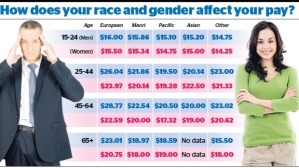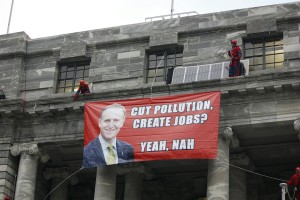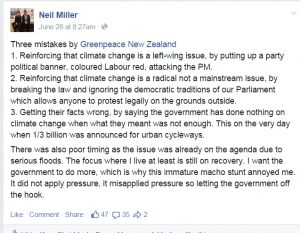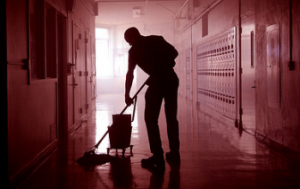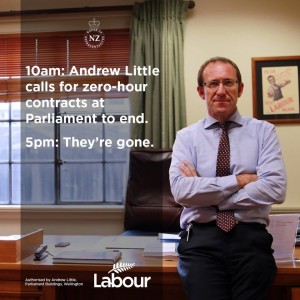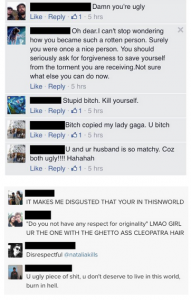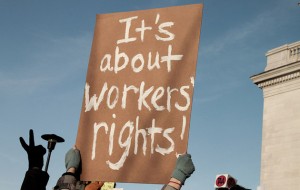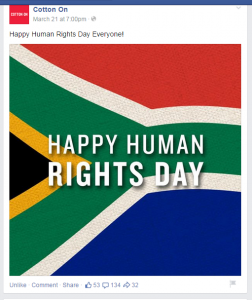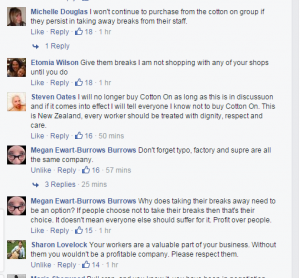There is an elite new rich club on the party scene in New Zealand. They are calling themselves the Fulltimer Society and, as much as I can gather, this club of young people is a hybrid of The YaYa Club, another more well-known rich society with a higher profile and membership. The Fulltimer Society was founded by 17 young men who may not all be from wealthy backgrounds but an affluent “life-style” is certainly what they are selling. As the NZ Herald reported the founders of the Fulltime Society have “created a business from partying”. Their membership includes Max Key, who happens to be the son of our millionaire PM John Key. In a piece entitled “Auckland’s extravagant, young, elite society you need to know about,” journalist Beatrice Hazlehurst spoke to the founder of the Fulltimer Society, Vicktor Green. She writes,
They united/were recruited if they had A) ever modelled or B) were widely connected in the nouveau-riche Auckland social scene – the latter applying to the likes of the Prime Minister’s son, Fulltimer Max Key.
Members of the Fulltimer Society get drunk in bars at Auckland’s Viaduct and pretend to be entrepreneurs (hey man, they organise events and shit) and urge young white girls holding champagne glasses to kiss each other for the camera, as if being born lesbian or bisexual is some kind of fashionable fad that gains you popularity instead of the typically more common social exclusion, discrimination and sometimes bodily harm. People who criticise their pursuits are labelled as having “tall poppy syndrome,” a term used to describe the cutting down and criticising of people of merit who, because of their talents or achievements, are elevated above the rest of us. Beatrice writes,
[Green] blames the “haters” on kind of exacerbated tall poppy syndrome – suggesting the critics are made up of those that would never be accepted into the Fulltimers ranks themselves, so they resort to taking the club down a peg – an “if you can’t join ’em beat ’em” mentality.
“Tall poppy syndrome”? Not. So. Much.

It is more an unbridled and growing discontent and frustration at this kind of wealth flaunting (whether perceived or real) in a country where 260,000 children are living in poverty and where upward mobility is nearly impossible to access for the growing working class – especially, for Maori and Pacific Islanders who are acutely affected by poverty. The knowledge there is plenty of wealth to go around stings: we can see it, but unfortunately this wealth is more and more concentrated in the hands of a few who will hoard and guard this money and the assets which come with it, until the day they fucking die. Winnie Byanyima, Executive Director of Oxfam International, wrote earlier this year, “the combined wealth of the richest 1 percent will overtake that of the other 99 percent of people next year unless the current trend of rising inequality is checked.”
It’s just, this all feels utterly fucking unfair? Like something is really rotten at the core of this once so-called great egalitarian country that has become a vastly divided society of “haves and have nots.” It’s become a place where Max Key can D.J (just like Paris Hilton) at glittering parties for members of a club that promotes itself as some kind of elite rich-kid society (as if what clubs like these “do” has anything to do with culture), and play shitty remixes of pop-songs, then post a viral video of his luxurious holiday in Hawaii with his blue eyed, blonde haired model girlfriend hanging off his arm. While many families could not afford the rising electricity prices to run a heater during the dead-cold chills of winter and where a young child died last year due to respiratory failure that the coroner attributed, in part, to the cold, damp mould-ridden state house she was living in. This kind of disparity in regards to the quality of life people can and cannot access is palpable.
https://www.youtube.com/watch?v=0lMzPWgPn3M
As the political underclass struggles daily to gain economic stability, we are told we just need to “work harder;” this statement is usually accompanied with a good dose of poverty shaming. Herein lies the myth we have been sold as truth: that somehow rich people, such as John Key, worked really hard for his millions and possess special skills and an intelligence, implying we do not. This myth is better known as the Self-Attribution Fallacy, wherein rich people credit their successes with outcomes for which they weren’t responsible. In other words: when rich people pat themselves on the back for all their successes in life they are kind of full of fucking shit. George Monbiot writes in the Guardian,
Many of those who are rich today got there because they were able to capture certain jobs. This capture owes less to talent and intelligence than to a combination of the ruthless exploitation of others and accidents of birth, as such jobs are taken disproportionately by people born in certain places and into certain classes.
Getting rich and remaining wealthy often has little to do with skill and much more to do with luck and having what it takes to break the backs of many as they stomp their way up to the top. Or like Max Key, rich young people inherit a bunch of money, and somehow think this makes them special, as if they possess superpowers we do not. When I talked to a friend who is a law student at Auckland University, he pointed out in regards to accruing wealth by luck and at the expense of others:
Prime Minister John Key, who was a Wall Street banker, did not produce any useful good or service. He just bought and sold currencies at the right time to make a huge profit. Currency speculation is a very useless industry which leads to huge riches for some but economic chaos and uncertainty for others. For example international currency speculation helped lead to the 1997-98 Asian financial crisis.
John Key was appointed the head of the Asian foreign exchange in Singapore in 1995 and during the staggering losses of the 1998 Russian financial crisis he oversaw the sacking of hundreds of employees. Key was nicknamed by co-workers as “the smiling assassin” in response to his “cheery” disposition while telling people they no longer had job.
Out of crisis and chaos there will always be an elite few who rise from the ashes of destruction by grinding their heels into the necks of others, eventually benefiting from the economic disasters around them.
One of Max Key’s stated goals in life is to turn his father’s millions into billions and, if Max has inherited his father’s ruthlessness and utter disregard for the welfare of others–evident in John Key’s overseeing of callous state welfare reforms by National MP Paula Bennett, and his cuts to public spending–no doubt Max who is studying finance, accounting and property at Auckland University, will accomplish this goal. The Key dynasty will be born.
I understand these young people who start-up these elite clubs are just responding to our times; they aren’t just some aberration.
Collectively, we have been taught money means status, and status (often defined by a ruthless exploitation of others and the acquiring of ludicrous amounts of money) means power; it so often seems that to these people, the pursuit of power and the need to “have it all” at the expense of millions of others, is far more important than building a sense of community or looking out for one another. We prize psychopathy over empathy and compassion within our dominate systems.
This is the perverse logic of neoliberalism and a constraining economic model that serves only the elite rich at the expense of our planet and the majority of people living on it.
There will always be very real, sometimes deadly, casualties in the pursuit of “personal freedom” and “choice.” Neoliberalism was the promise that once free from state “interference” our lives would become better and we would have more autonomy, and this would be a good thing. For example: once state welfare is abolished people would be forced to find work, and thus, if they can’t find jobs they will then be pushed to create new work opportunities and jobs for themselves out of necessity. The unemployed will not become unwitting victims of the “welfare-trap” because, simply, that safety net would no longer exist.
What has resulted though, is not more choice for the majority of us, nor more “freedoms,” but the illusion of choice, or what I prefer to call “constricted choice,” and therefore less [economic] freedom. When short sighted governments slash state welfare they often push people further into crippling poverty; you may avoid creating “victims” of the “welfare trap,” but instead “victims” of neoliberalism are created.
So when I read about Max Key, who benefits from neoliberal policies, going on luxurious holidays and having endless leisure time to pursue his passions such as DJing and going on holidays most of us can only dream of, I am reminded of my own “restricted choice”… .
As a low paid service worker I can either pick one shitty, meaningless and low-paid bar job or I can pick another shitty, meaningless and low-paid bar job that may have some extra benefits such as sick pay, eventually.
A more extreme example of what “constricted choice” looks like I learned about when I told a writer friend in America who is currently working at a supermarket as a low wage earner about my ideas around the realities of “constricted choice.” He told me:
“I’m joining the military soon because I feel like I am not doing anything with my life and there is a lot of tension at home. Essentially, for me, It’s either the military or homelessness. However I am looking at the bright side: I can get paid and travel, but I could get placed somewhere shitty and if we invade some place I could end up getting shot at.”
For many people, limited options force them to consider and often take work or career paths which are not only limiting and depressing, but also dangerous, if not deadly.
Being rich doesn’t just buy you pretty things, it also buys you an abundance of choice; it buys you leisure time to pursue whatever it is that brings you joy and fulfilment, and a sense of well-being. Even if this “fulfilment” is found in organizing booze drenched parties at fancy bars geared at the upper classes, it also buys you time to spend with the people you love and care for. It buys you the time and space to develop and pursue your passions whether that be music, drawing, writing, dance, whatever; these are all things which develop and add to culture.
The cost of being poor is not just the denial of basic necessities like a heater in winter to stay warm or a dry and warm house to live in, it is also the loss of sleep because you are working some shit low paid job which means working harder and longer hours to stay afloat, thus you have less or no time to relax and rest. If you stop to catch your breath or take a day off from whatever menial job you are working, to gather yourself and catch up on sleep, it means forgoing rent (risking becoming homeless) or buying less, or no food the following week. If you are economically poor, you are typically also likely to be “time poor.”
This is the bottom line for so many people who are struggling to stay afloat in a rich world:
in a country where there is an abundance of money and resources to go around, an elite selfish and callous few are refusing to share. For a few to prosper many must suffer.
This was first posted on Chloe King’s own site Posse. You can follow her on twitter!


